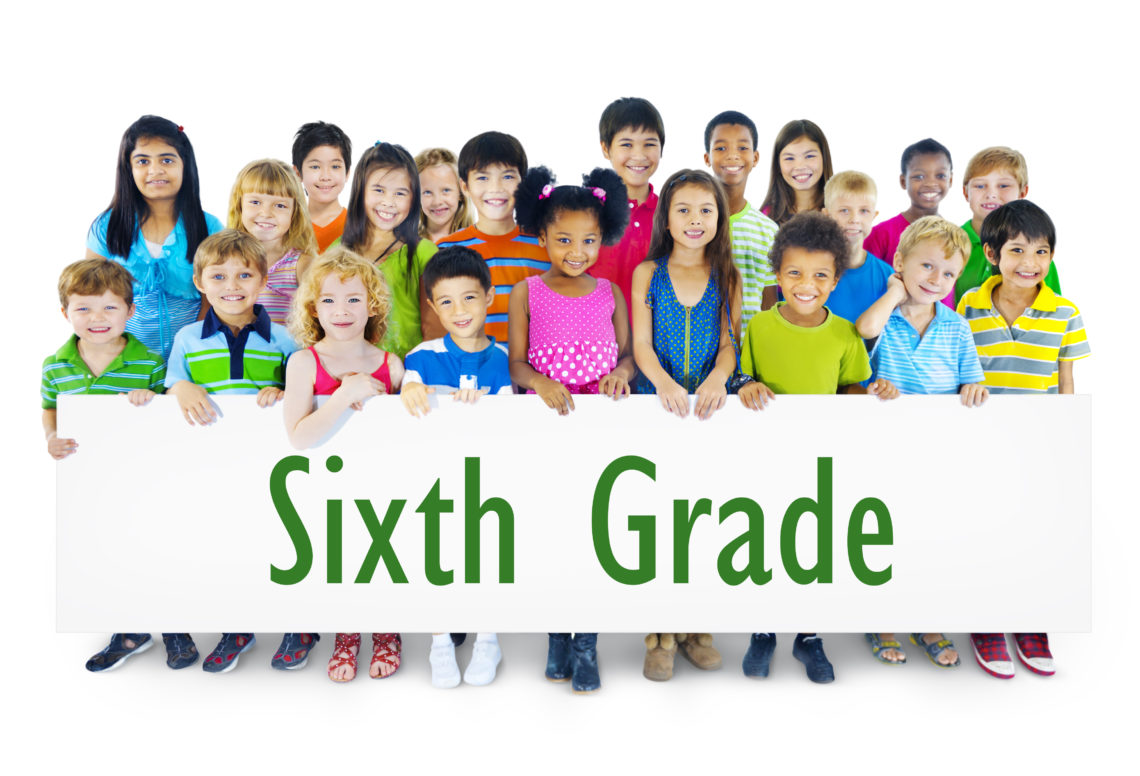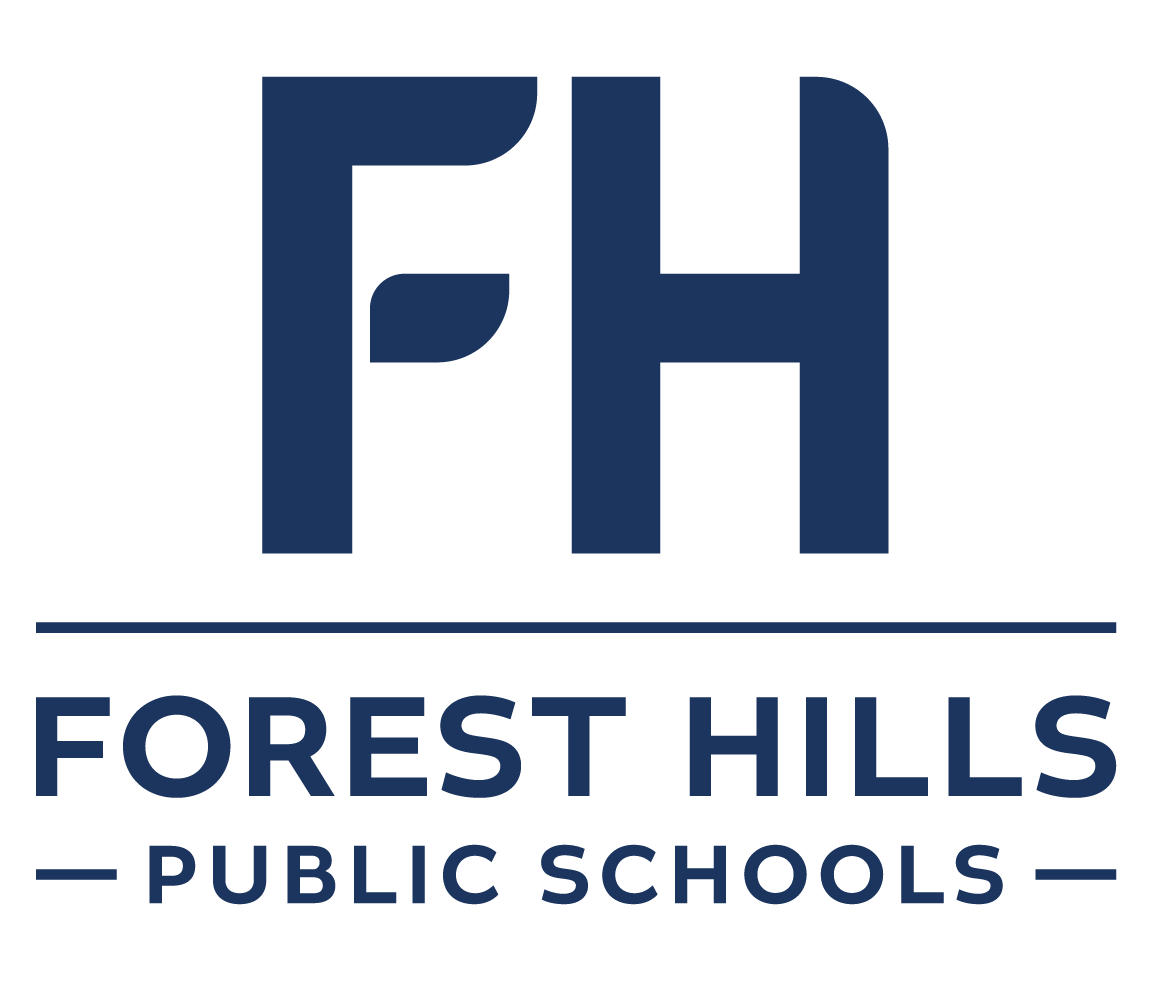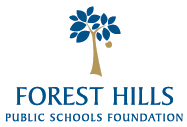

English Language Arts
Sixth graders increase their independence and become active, thoughtful, engaged readers and writers. They read more challenging texts and understand a range of genres and more abstract forms of literature, such as satire, and literary devices such as irony. Sixth graders are challenged by many longer descriptive words and by content-specific and technical words that require using background knowledge, and tools such as glossaries. They develop their ability to identify big ideas in texts and share inferences of their own to build meaning around more mature themes that expand their knowledge of social issues. Sixth graders continue to read, write, and discuss fiction and nonfiction texts daily to learn how different sources are crafted to help readers construct meaning about the world. Academic conversations help students apply foundational listening and speaking skills to learn how to understand, speak, and use words to communicate and actively engage within and beyond the classroom. Students’ writing stamina grows. They become more sophisticated with their words when writing about their personal experiences. Sixth graders deepen their understanding of the qualities of good writing by exploring a variety of structures using the writing process. The ultimate goal of a balanced language arts curriculum is to build skills, independence, and passion to become lifelong readers, writers, and speakers.
Throughout the year teachers use a variety of formal and informal assessments to examine students’ strengths and areas of focus to inform instruction to ensure all students progress toward grade-level expectations.
Sixth graders continue to learn and apply social and emotional skills in a variety of ways to become self-aware to nurture positive and respectful relationships with their teachers and peers, and to self-advocate. Creating a safe and inclusive community is foundational to a great year of learning for all.
Highlights of Sixth-Grade Language Arts
- Analyzing how chapters of a book, scenes of a play, or stanzas of a poem fit into the overall structure of the piece and contribute to the development of ideas or themes.
- Gaining knowledge from materials that contain extensive use of elaborate diagrams and data to convey information and illustrate concepts.
- Evaluating the argument and specific claims in written materials or a speech, and distinguishing claims that are supported by reasons and evidence from claims that are not.
- Presenting claims and findings to an audience orally, sequencing ideas logically, and highlighting main ideas or themes.
- Writing arguments that provide clear reasons and relevant evidence, using credible sources.
- Conducting short research projects to answer a question, drawing on several sources and sharpening the focus based on the research findings.
- Participating in class conversations to understand others, build vocabulary, and communicate thoughts and needs.
- Determining the correct meaning of a word based on the context.
Visit Michigan K-12 English Language Arts Standards for a complete view of the sixth-grade standards your child will be working toward in English language arts.
 Ideas for Supporting Your Reader/Writer
Ideas for Supporting Your Reader/Writer
- Establish a family reading time.
- As a family, discuss the similarities and differences between the books you are reading.
- Go online to your local library website to view a calendar of teen events (often at no cost for participation).
- Apply for a library card so all family members can check out books on subjects that interest them.
- Start a family vocabulary box or jar. Have everyone write down new words they discover, add them to the box, and use the words in conversation.
- Encourage your child to always carry a book to read in spare moments.
- Talk about the events of the school day.
- Encourage your child to write a thank you note or letter to a family member or friend.
- Encourage your child to journal to capture thoughts and daily events in writing or drawings.

Social Studies
Geography: Regions and People
Sixth-grade students expand and deepen their understanding of world geography, a field of study that examines people, places, and environments—how they came to be and how they affect each other. As they learn about physical geography (the study of natural features on the surface of the Earth) and human geography (how people have spread across Earth), they begin to master the basic concepts, skills, and tools that will help them apply the themes of geography to their inquiries about the interconnectedness of people and places worldwide. Integrated throughout the year, students will also study contemporary civics/government and economics.
Visit the Michigan Social Studies Academic Standards for a complete view of the grade standards your child will be working toward in social studies. This curriculum is also aligned with the College, Career & Civic Life Framework for Social Studies State Standards.
 Ideas for Supporting Your Social Scientist
Ideas for Supporting Your Social Scientist
- Read books about interesting places, people, and events in history.
- Seek opportunities to volunteer for a local organization.
- Discover Michigan together. Bring history alive by visiting historic homes, sites, local museums, and cemeteries.
- Visit local museum websites to learn about family opportunities and the monthly events in the Grand Rapids metro area.
- Discuss your family stories and history. Encourage your child to ask relatives questions about their lives. Put the information together in an album or brainstorm different ways to tell family tales, such as poems or short stories.

Science
Sixth-grade students learn about the life science concepts of the survival needs of organisms and what happens when those needs are not met. They are introduced to chemistry by focusing on the particle nature of matter through a variety of laboratory and everyday phenomena related to the structure and properties of matter. Students explore the Earth science topics of how water and rock interact as well as how water has shaped. Finally, sixth-graders explore physical science by learning about the scientific principles that explain the behavior of light.
FHPS focuses on instruction and learning of the Michigan Science Standards. Click on the link to view the standards for the 6-8 grade band that your child will be working toward in science.
 Ideas for Supporting Your Scientist
Ideas for Supporting Your Scientist
- Talk with your child to listen and learn what they are curious about.
- Science in the kitchen: Follow recipes and observe what happens as ingredients are added.
- Science in the backyard or park: Notice what your senses observe. Discuss the types of birds, animals, and insects that you observe.
- Visit local museum websites to learn about family opportunities and the monthly events in the Grand Rapids metro area and beyond.

Mathematics
Sixth graders build off of their previous experiences and deepen their mathematical skills while applying the practices mathematicians use. They…
- Make sense of problems and persevere in solving them.
- Reason abstractly and quantitatively.
- Construct viable arguments and critique the reasoning of others.
- Model with mathematics.
- Use appropriate tools strategically.
- Attend to precision.
- Look for and make use of structure.
- Look for and express regularity in repeated reasoning.
Sixth-grade mathematicians flex their creative problem-solving skills and flexible thinking in a problem-centered mathematics classroom. They work through challenging problems as members of an active mathematics community, developing independence and persistence. With support and guidance from their teacher and fellow mathematicians, they unpack the mathematics behind the problems they solve.
Highlights of Sixth-Grade Mathematics
Ratios and Proportional Relationships
- Understand ratio concepts and use ratio reasoning to solve problems.
The Number System
- Apply and extend previous understandings of multiplication and division to divide fractions by fractions.
- Multiply and divide multi-digit numbers and find common factors and multiples.
- Apply and extend previous understandings of numbers to the system of rational numbers.
Expressions and Equations
- Apply and extend previous understandings of arithmetic to algebraic expressions.
- Reason about and solve one-variable equations and inequalities.
- Represent and analyze quantitative relationships between dependent and independent variables.
Geometry
- Solve real-world and mathematical problems involving area, surface area, and volume.
Statistics and Probability
- Develop an understanding of statistical variability.
- Summarize and describe distributions.
Visit the Michigan Mathematics Academic Standards for a complete view of the sixth-grade standards your child will be working toward in math.
 Ideas for Supporting Your Mathematician
Ideas for Supporting Your Mathematician
- Check out the many resources available on Connected Mathematics Project (CMP3) website for families.
- Visit the Standards for Mathematical Practice for Parents.







